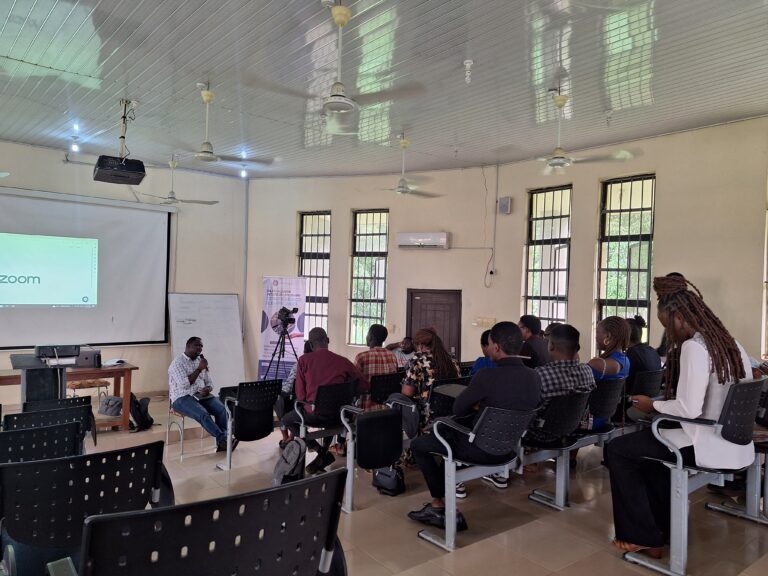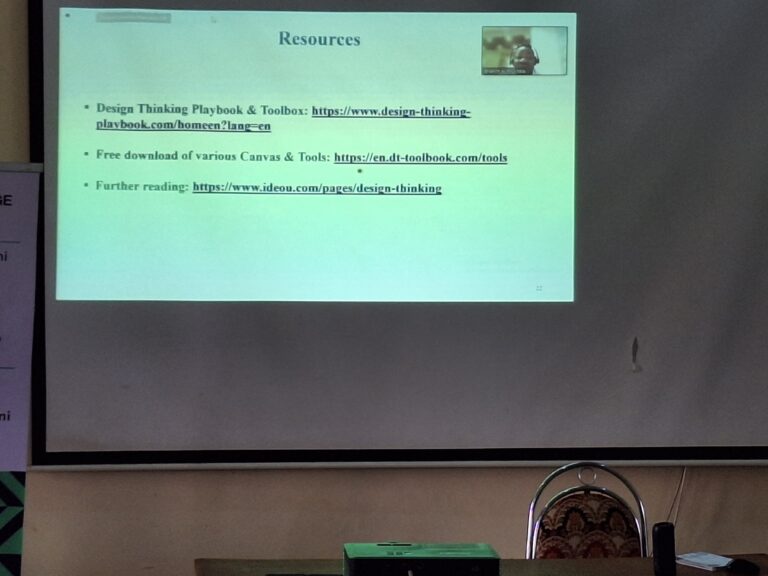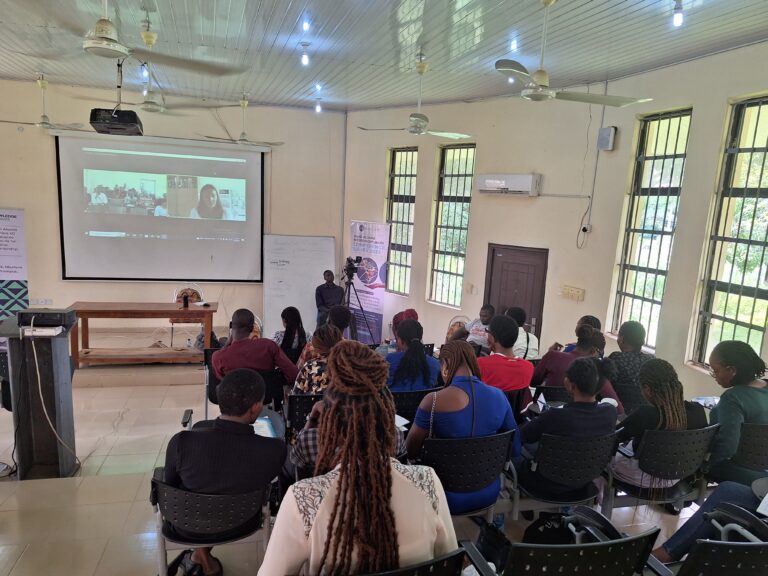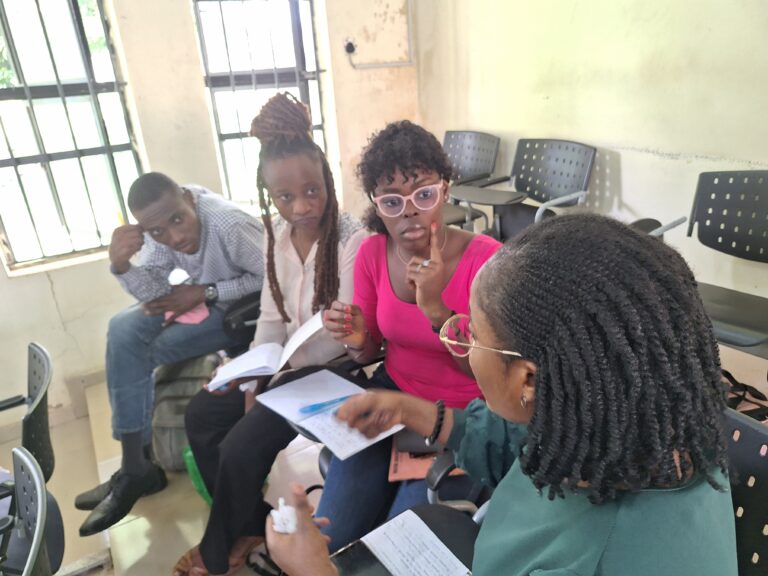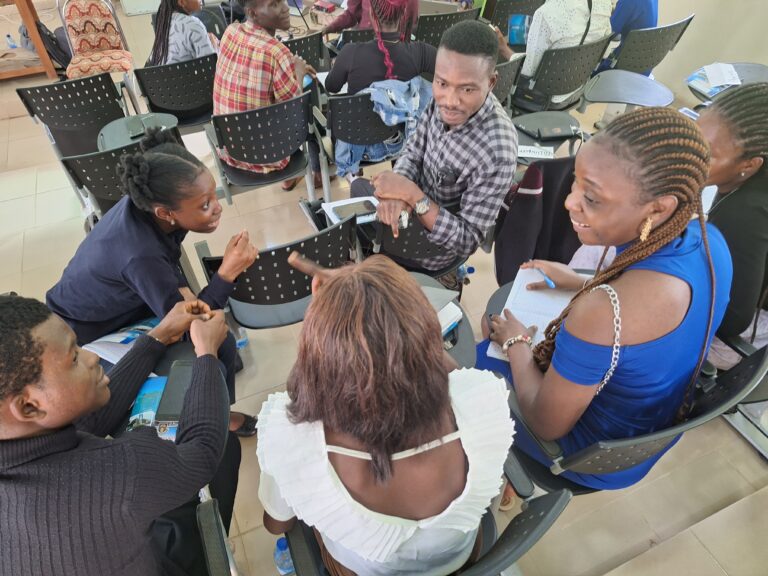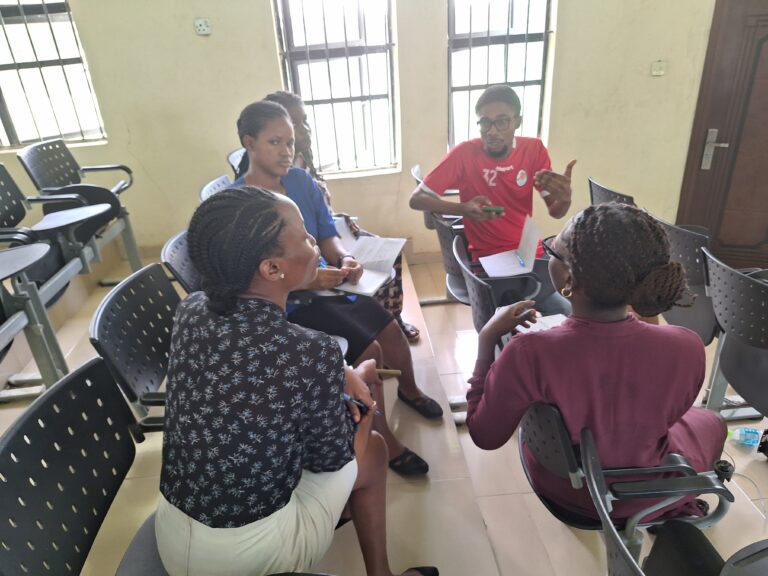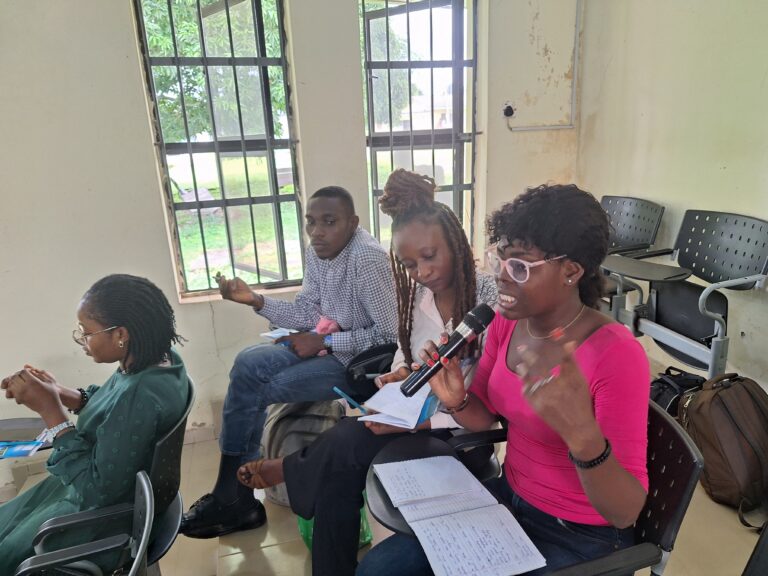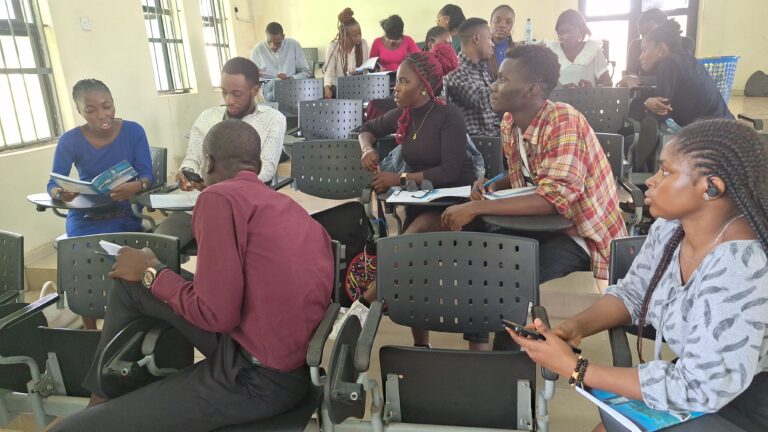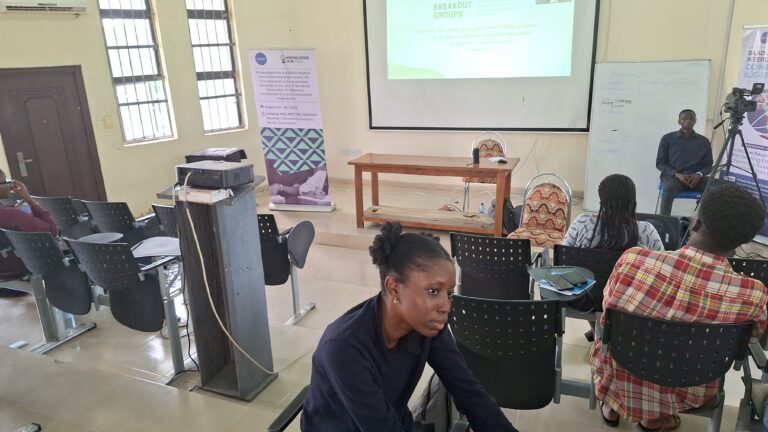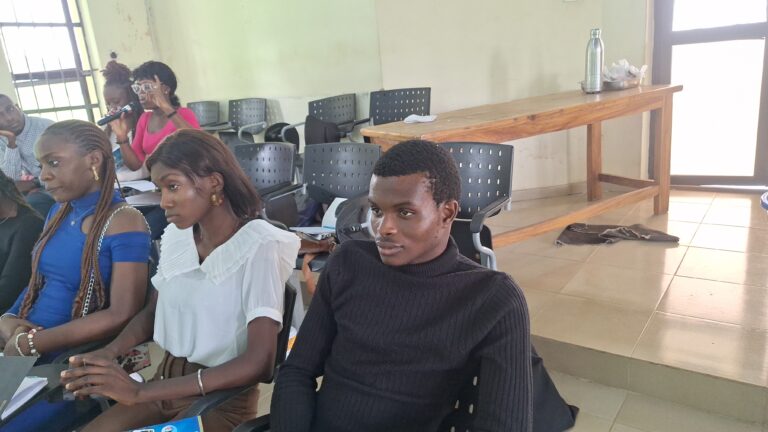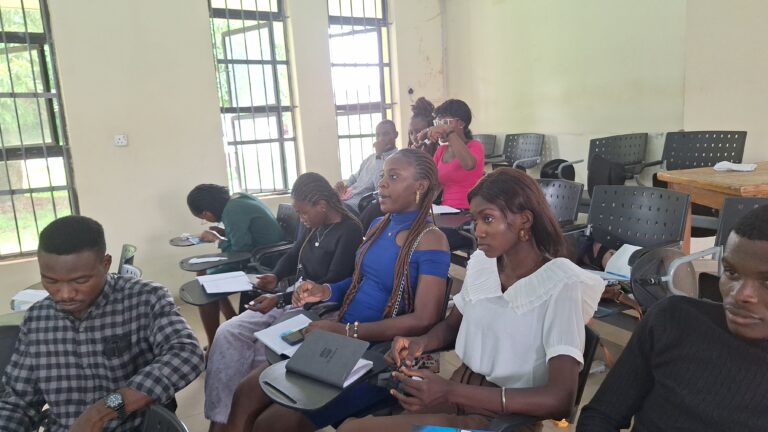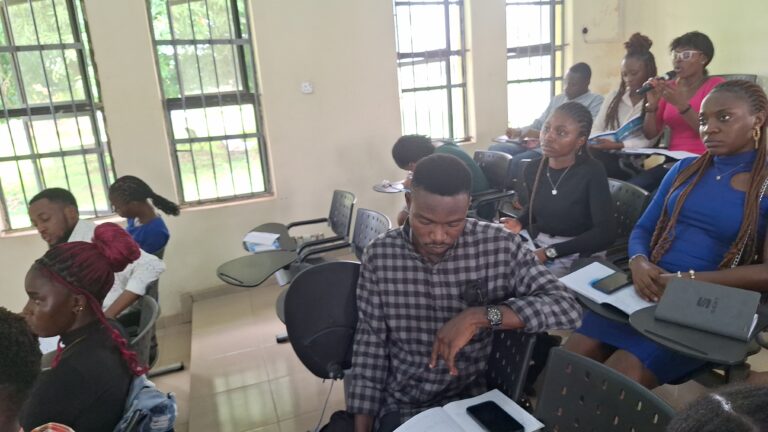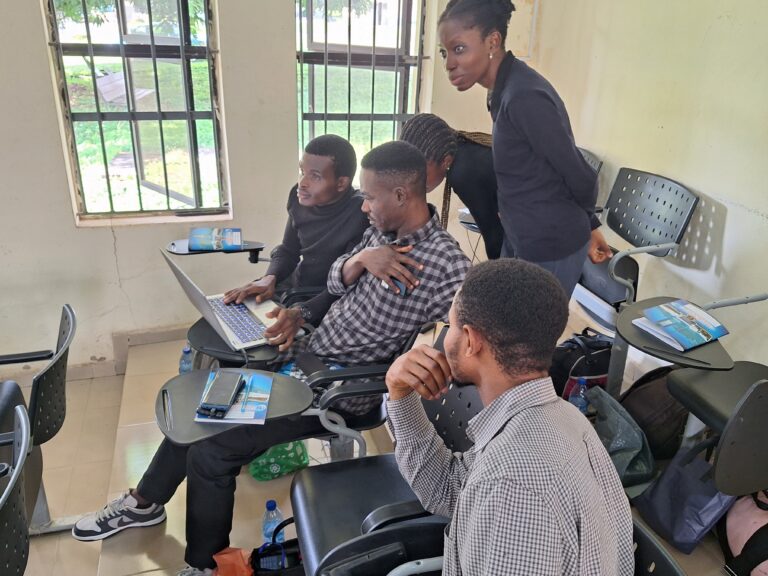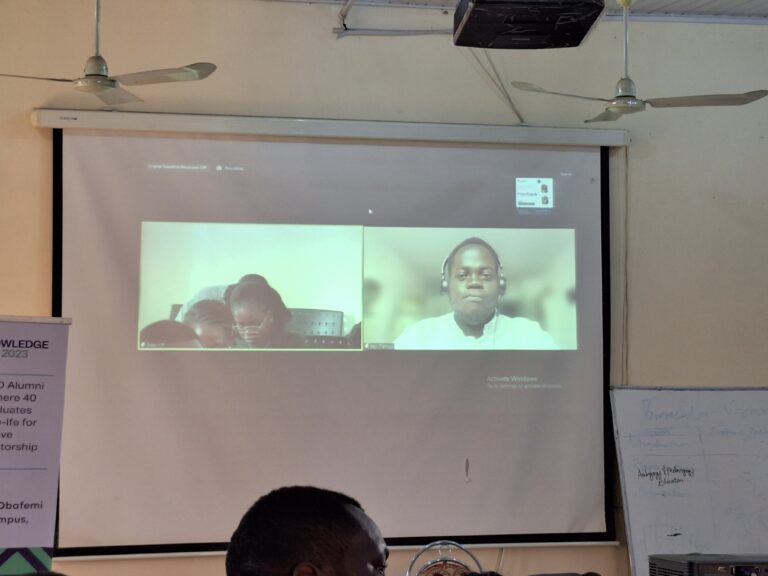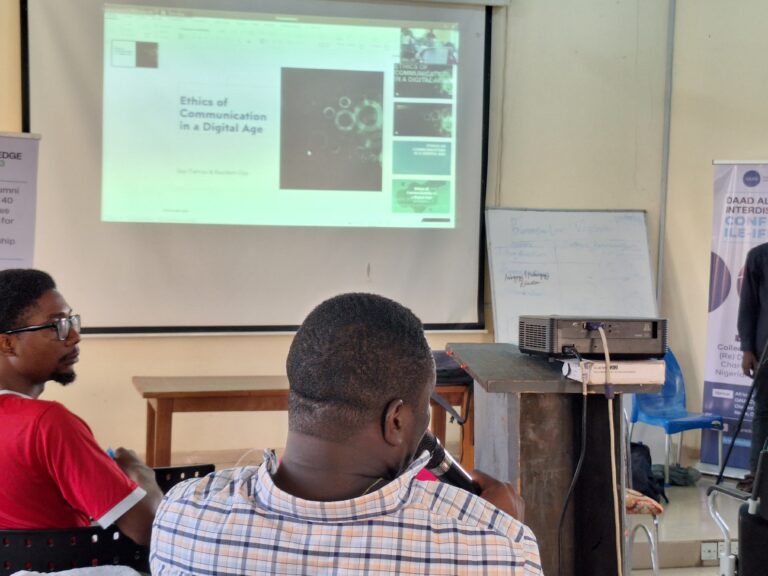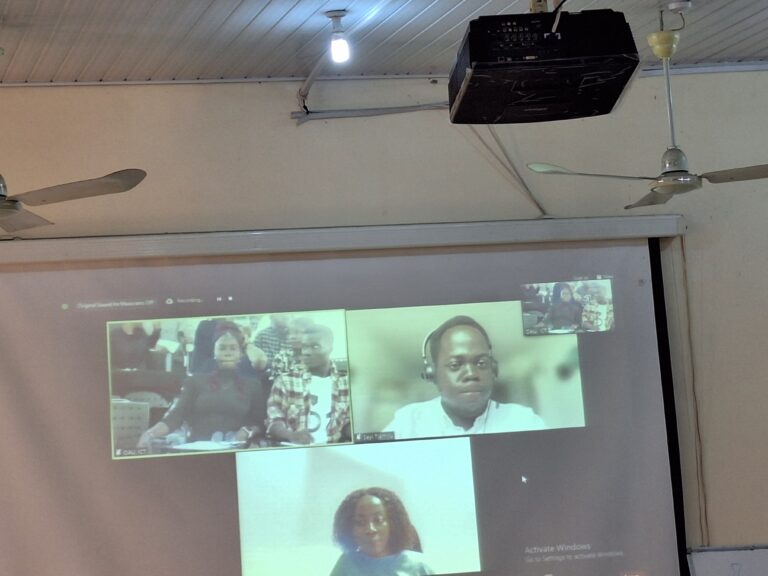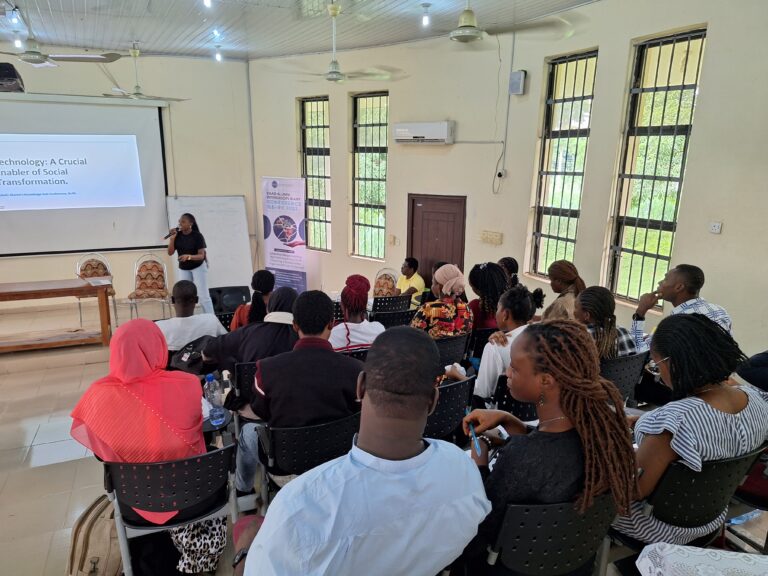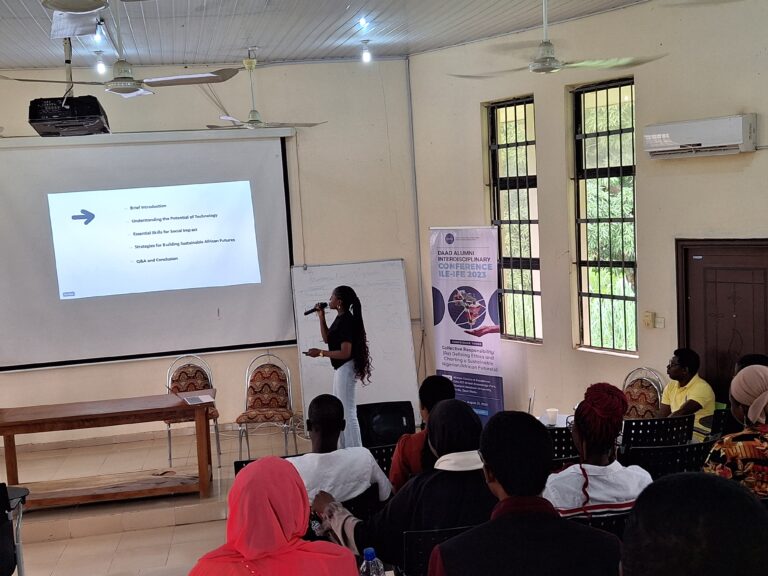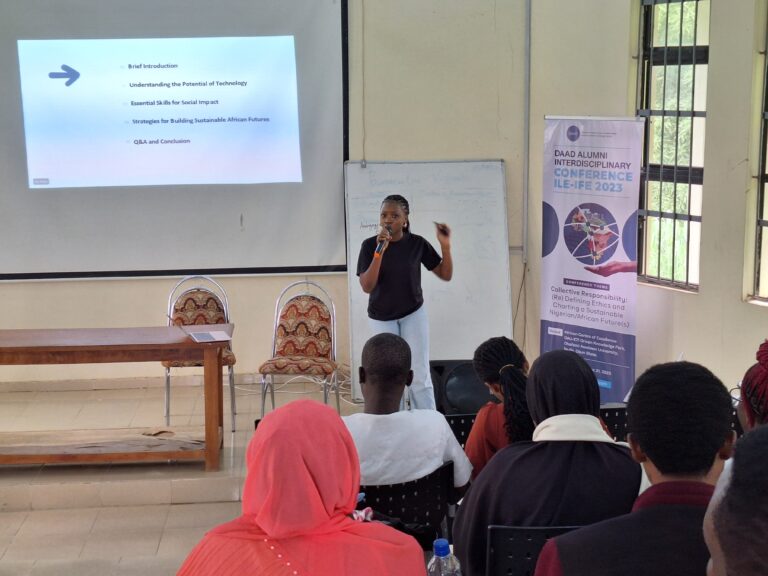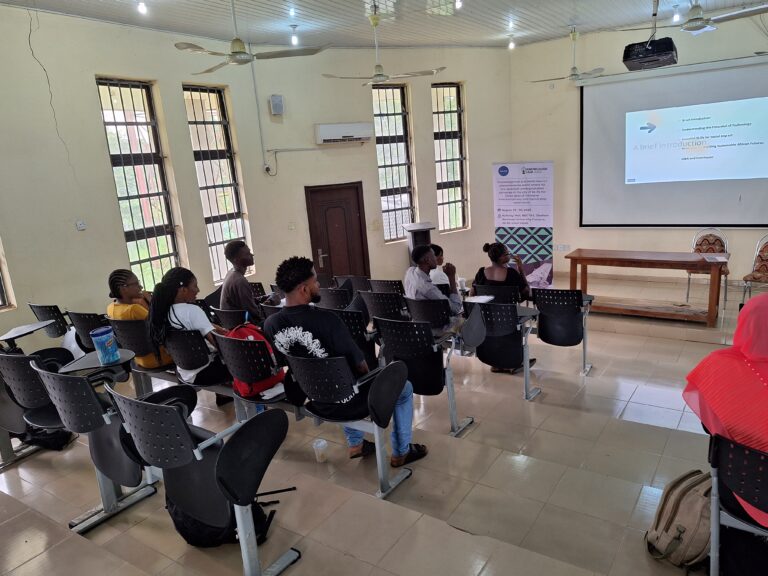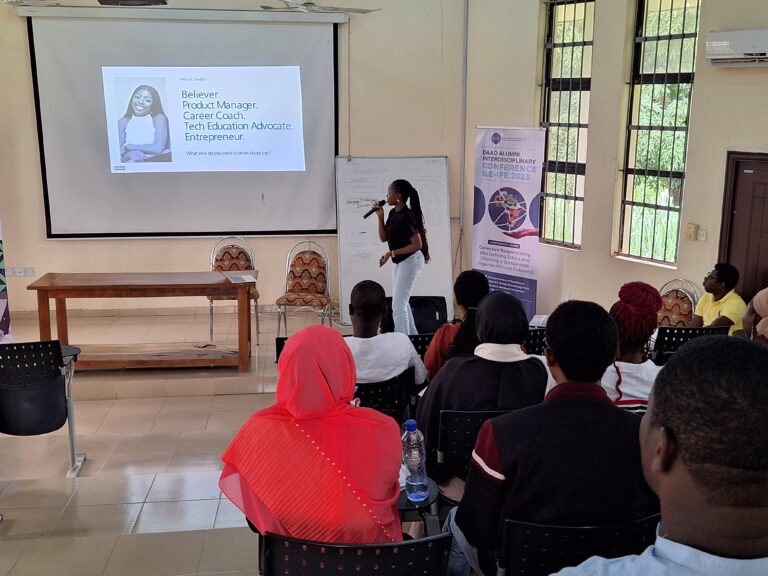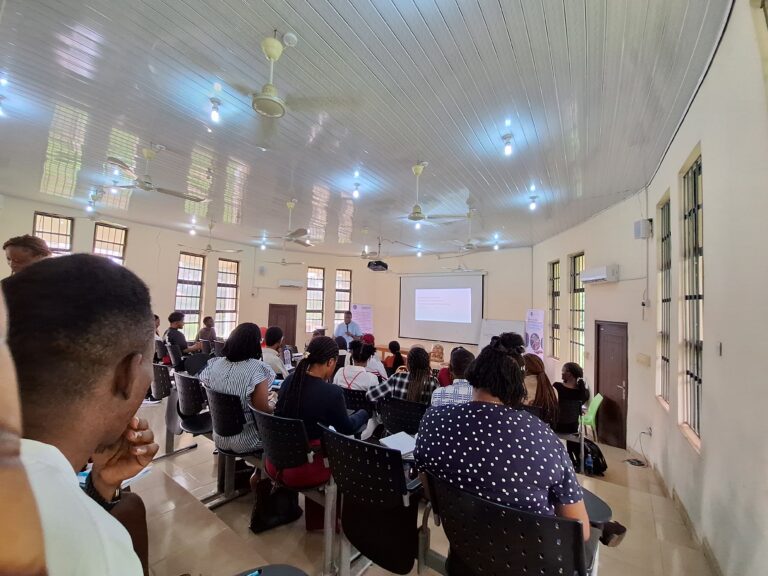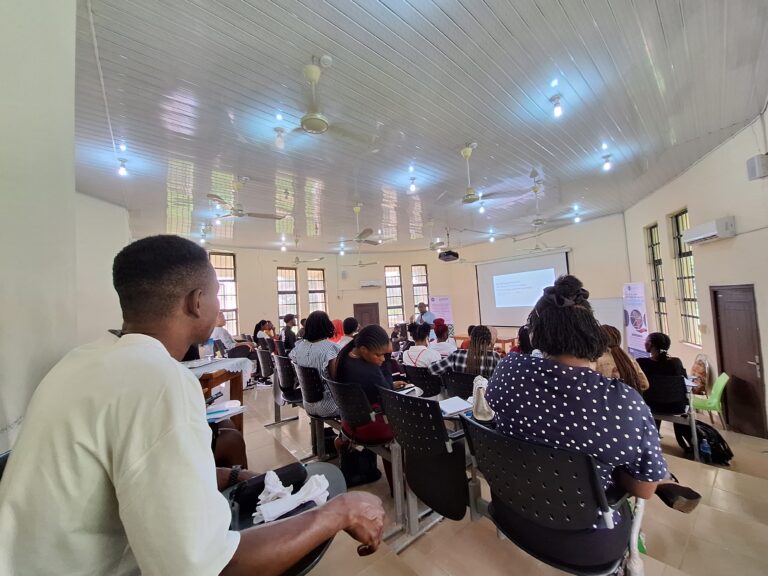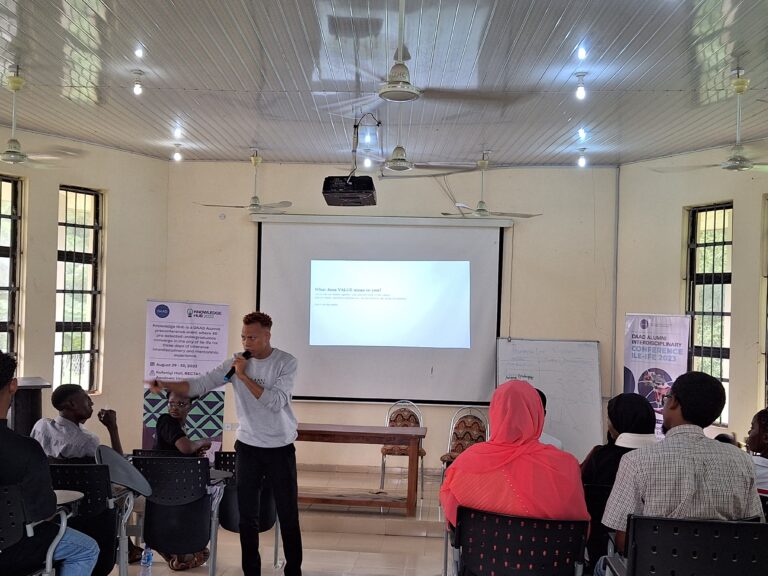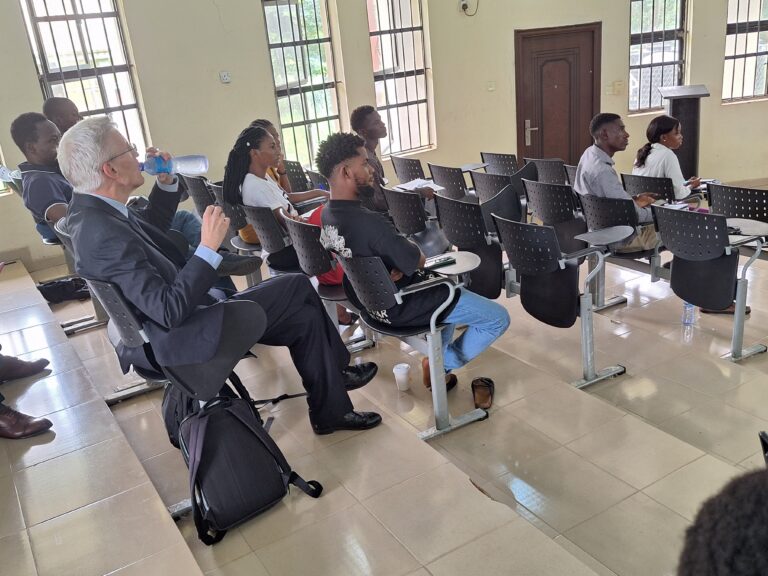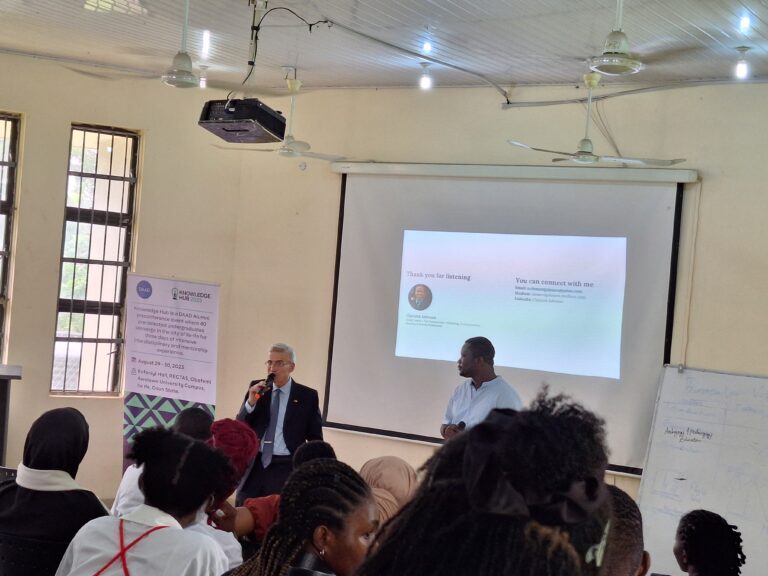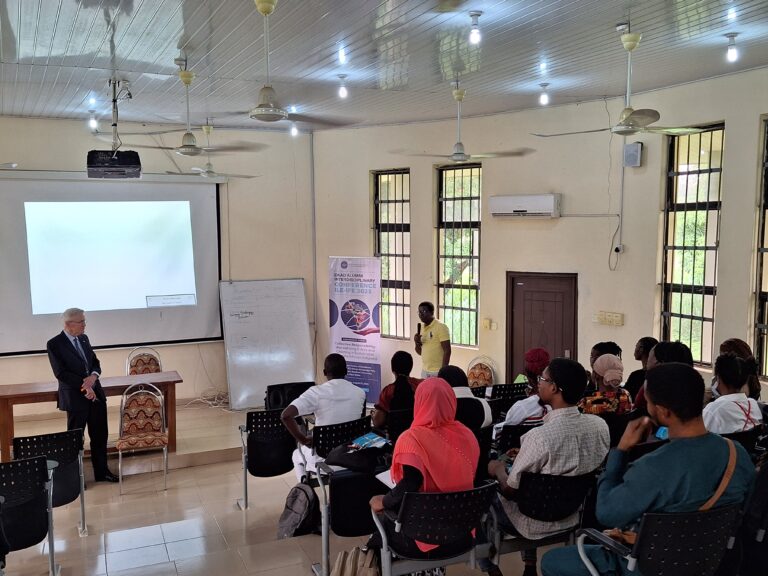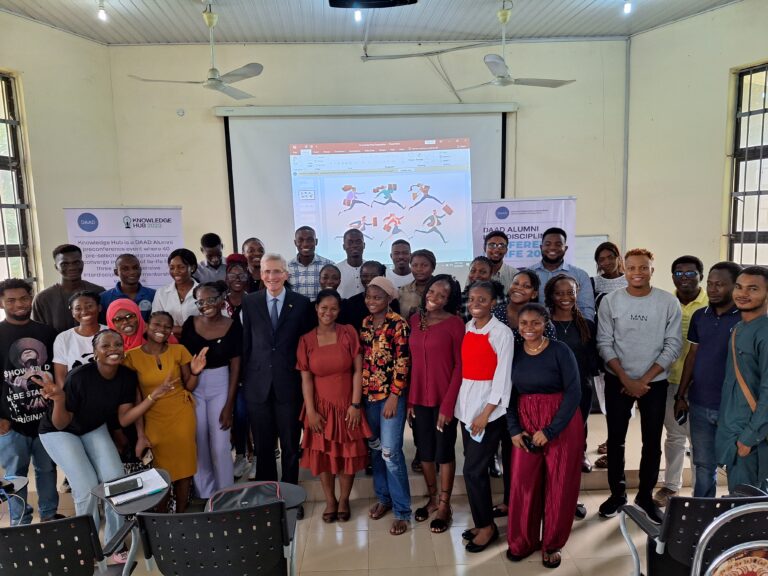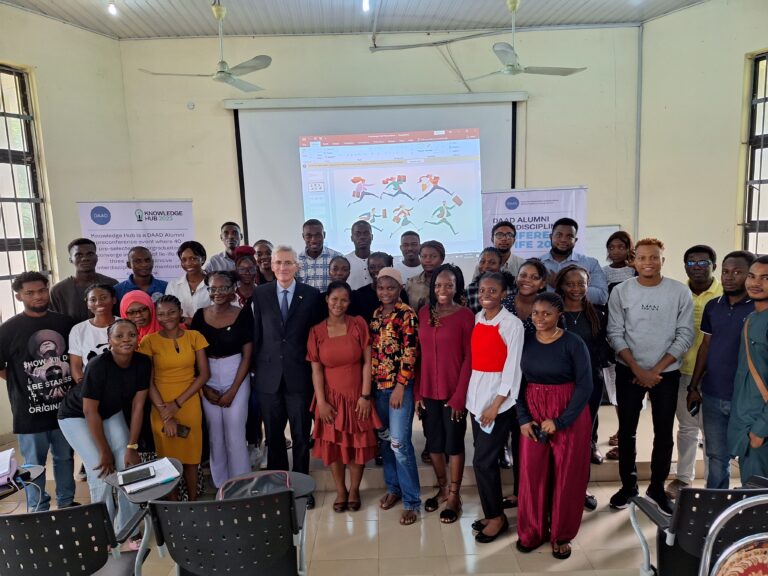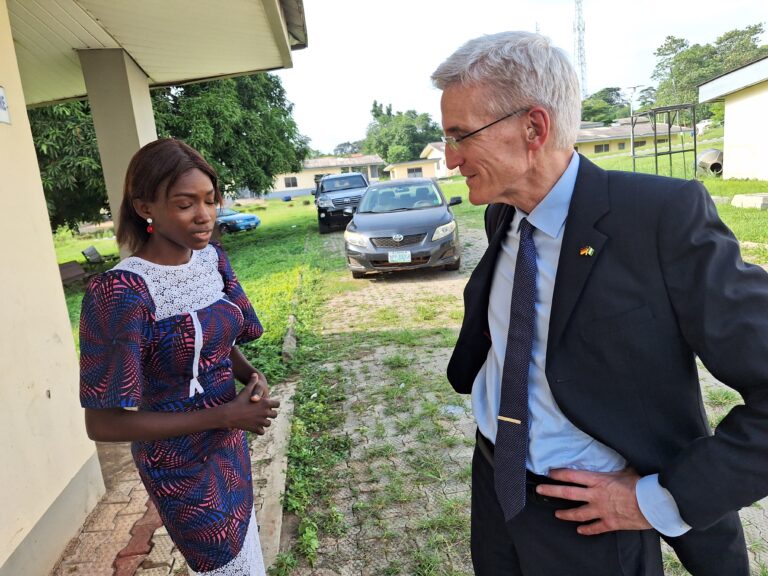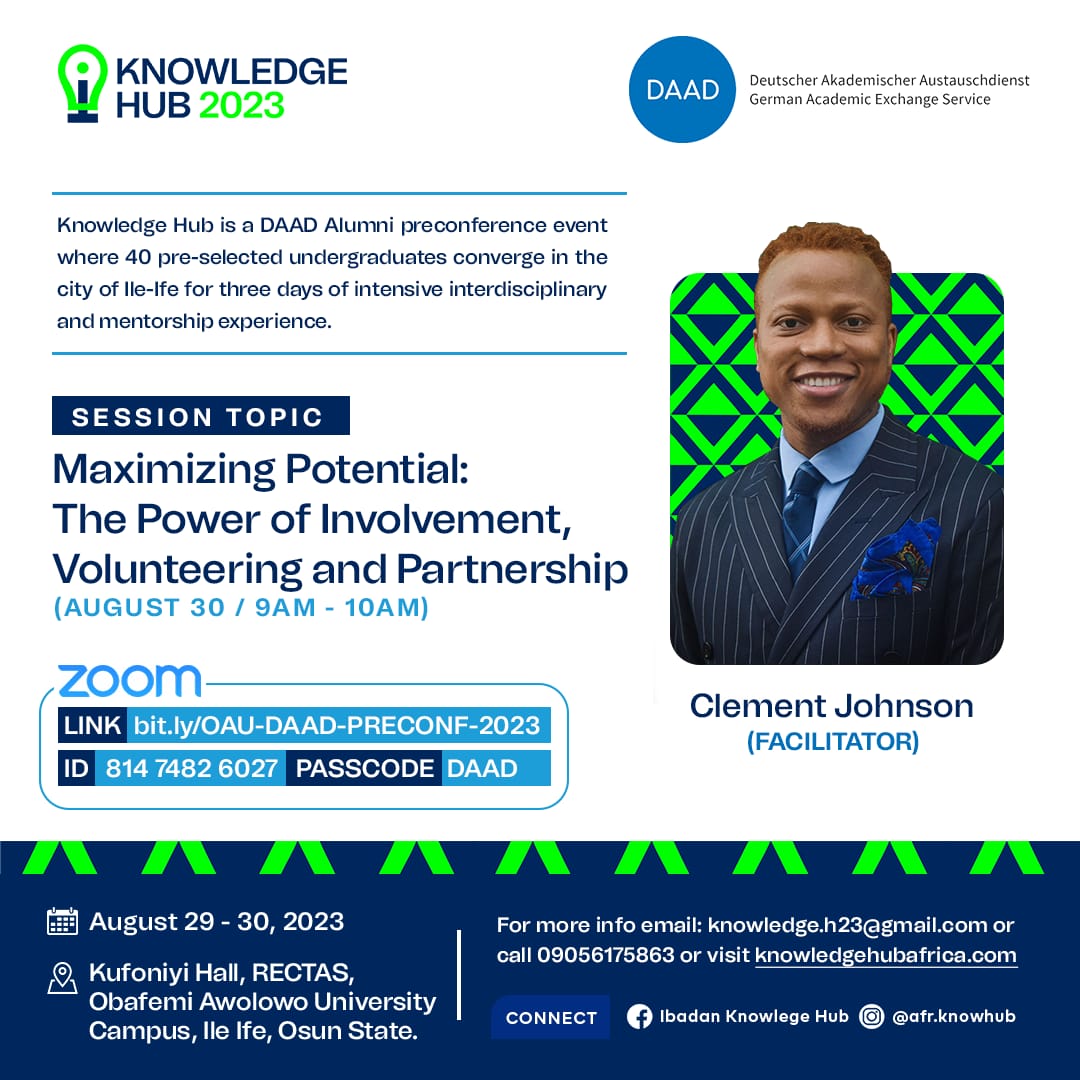
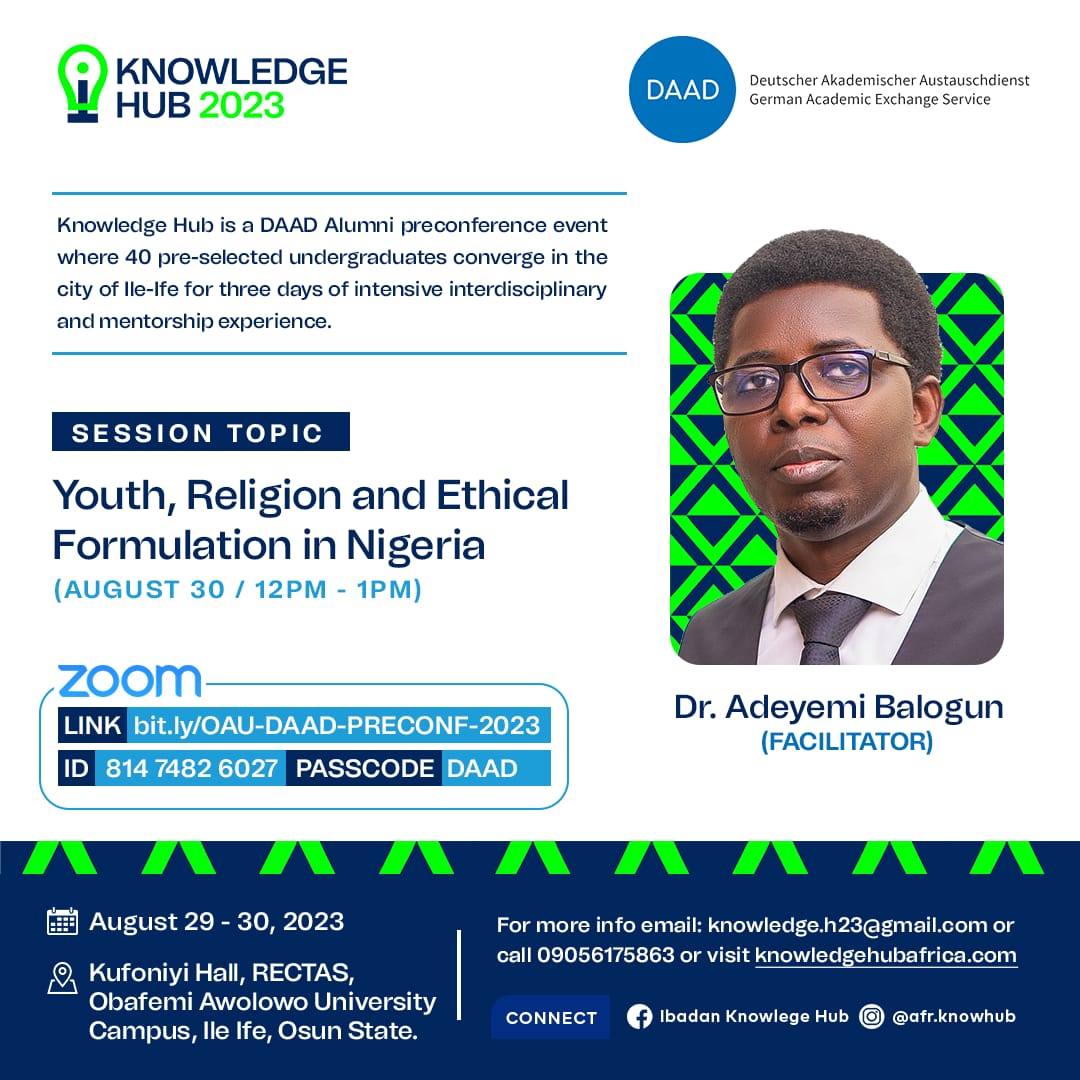
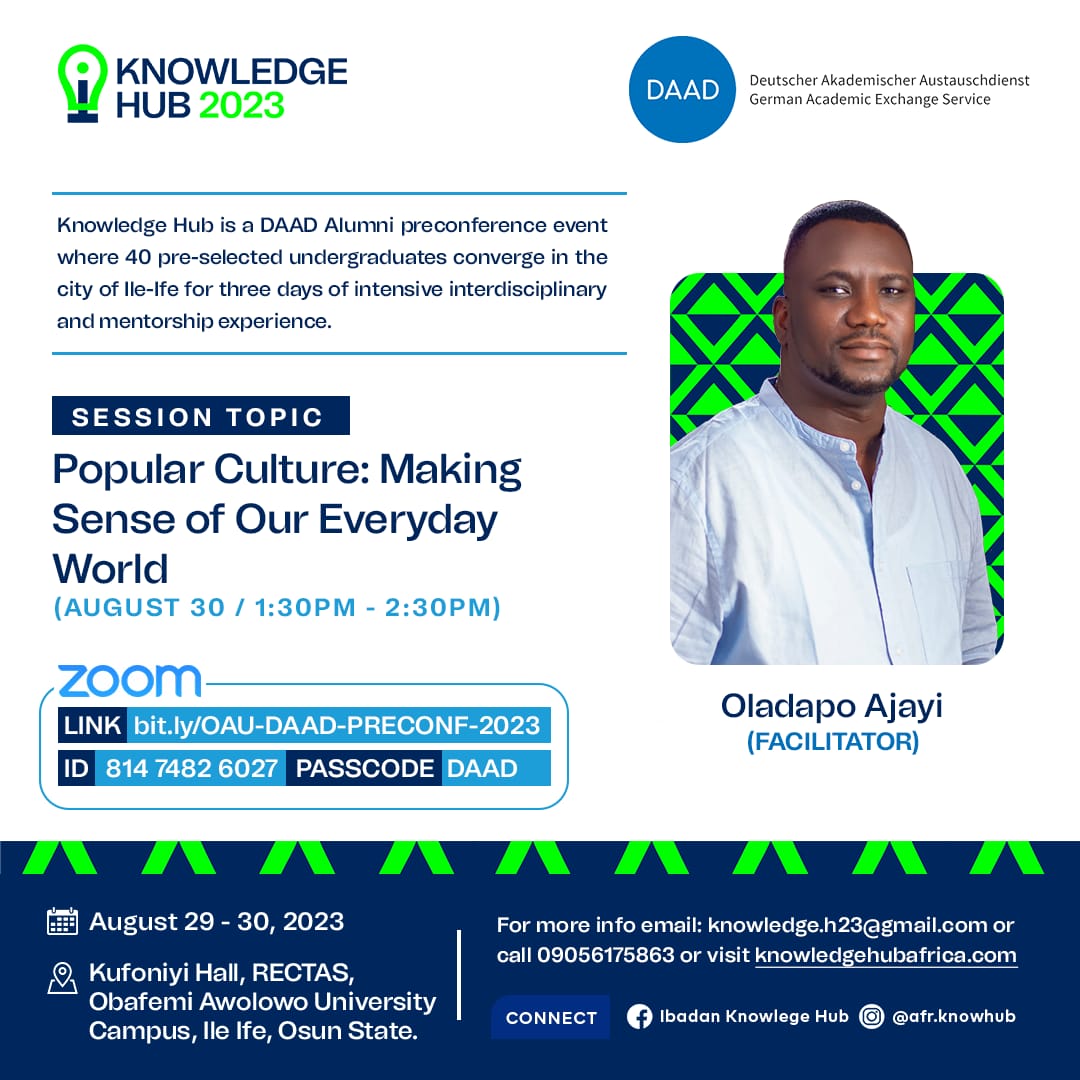
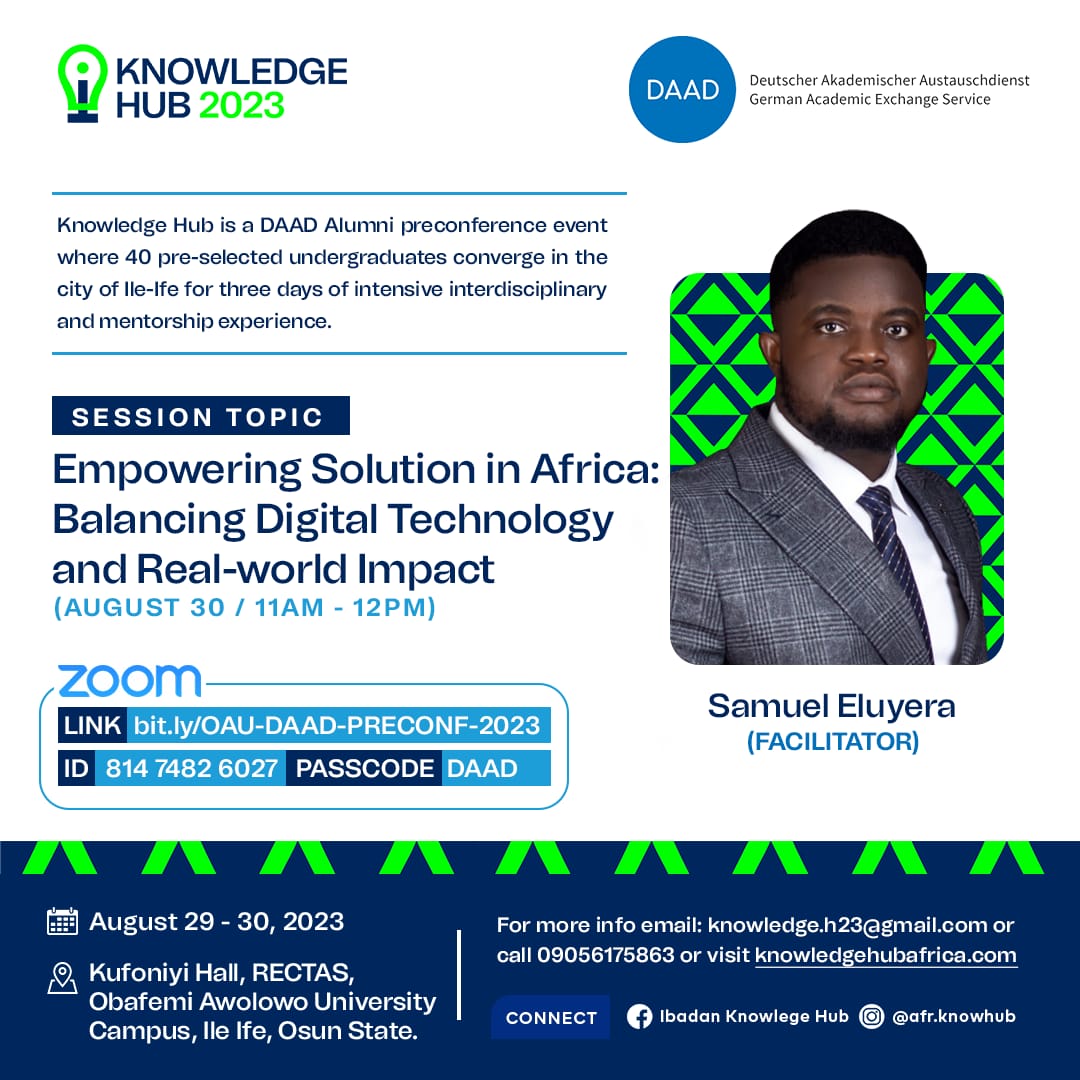
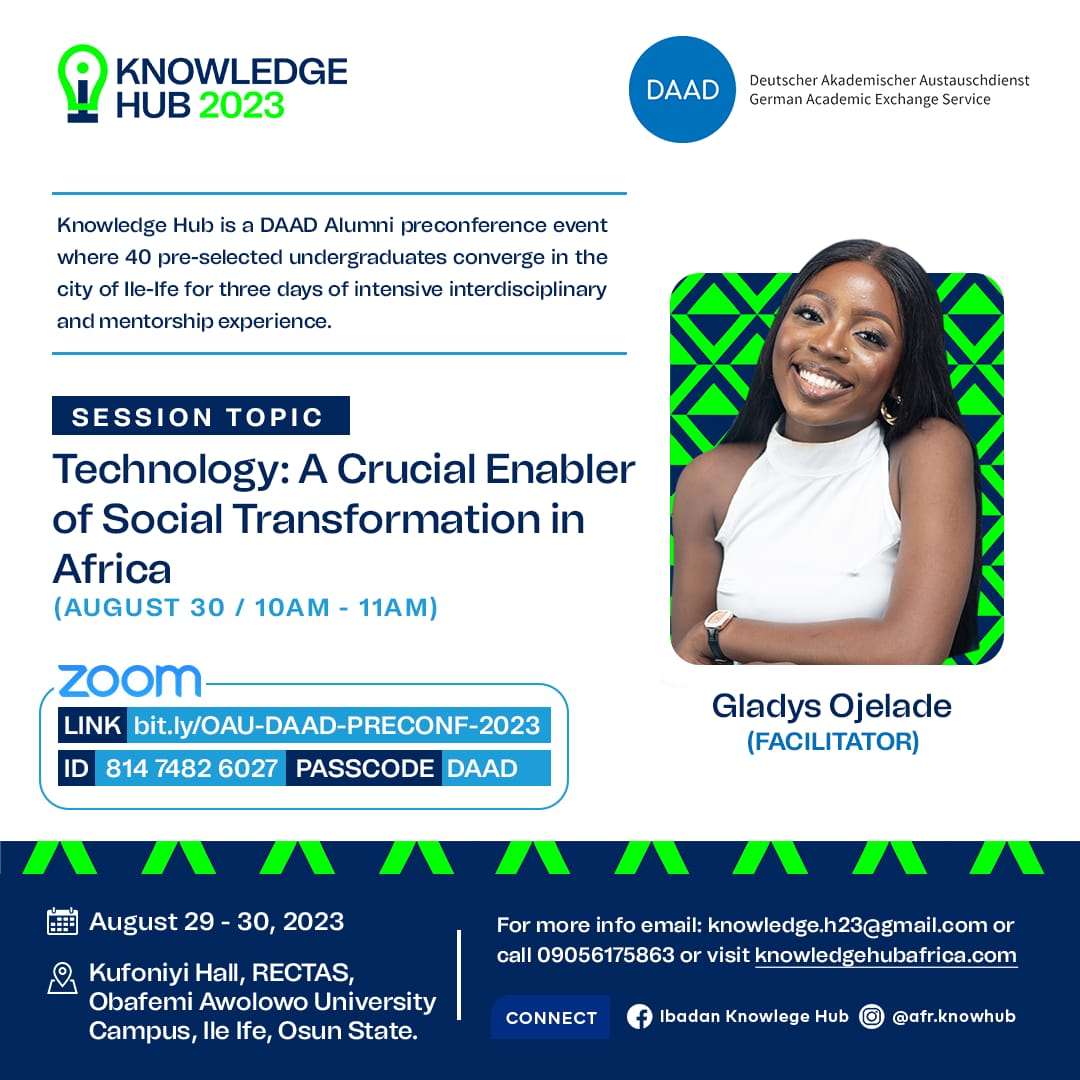
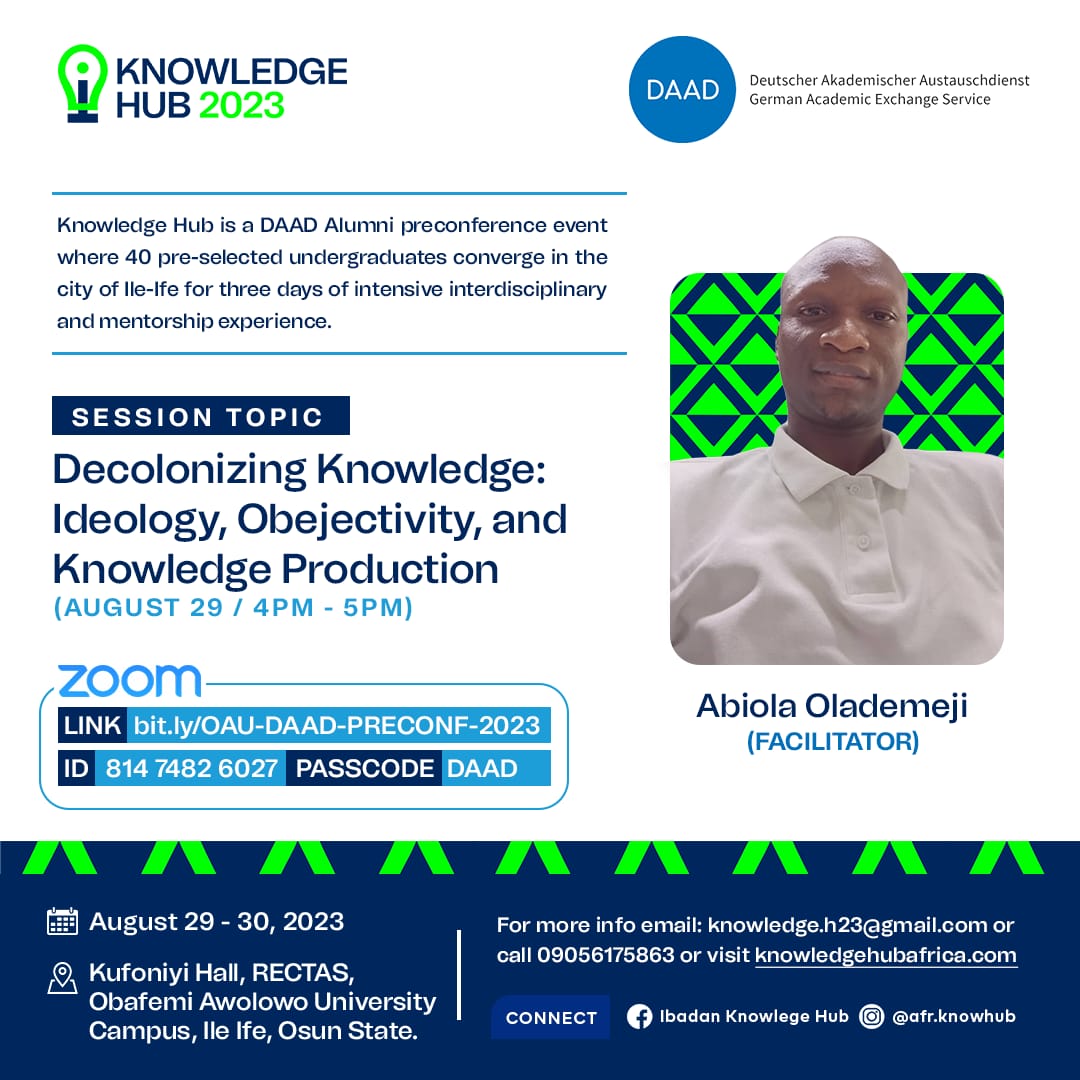
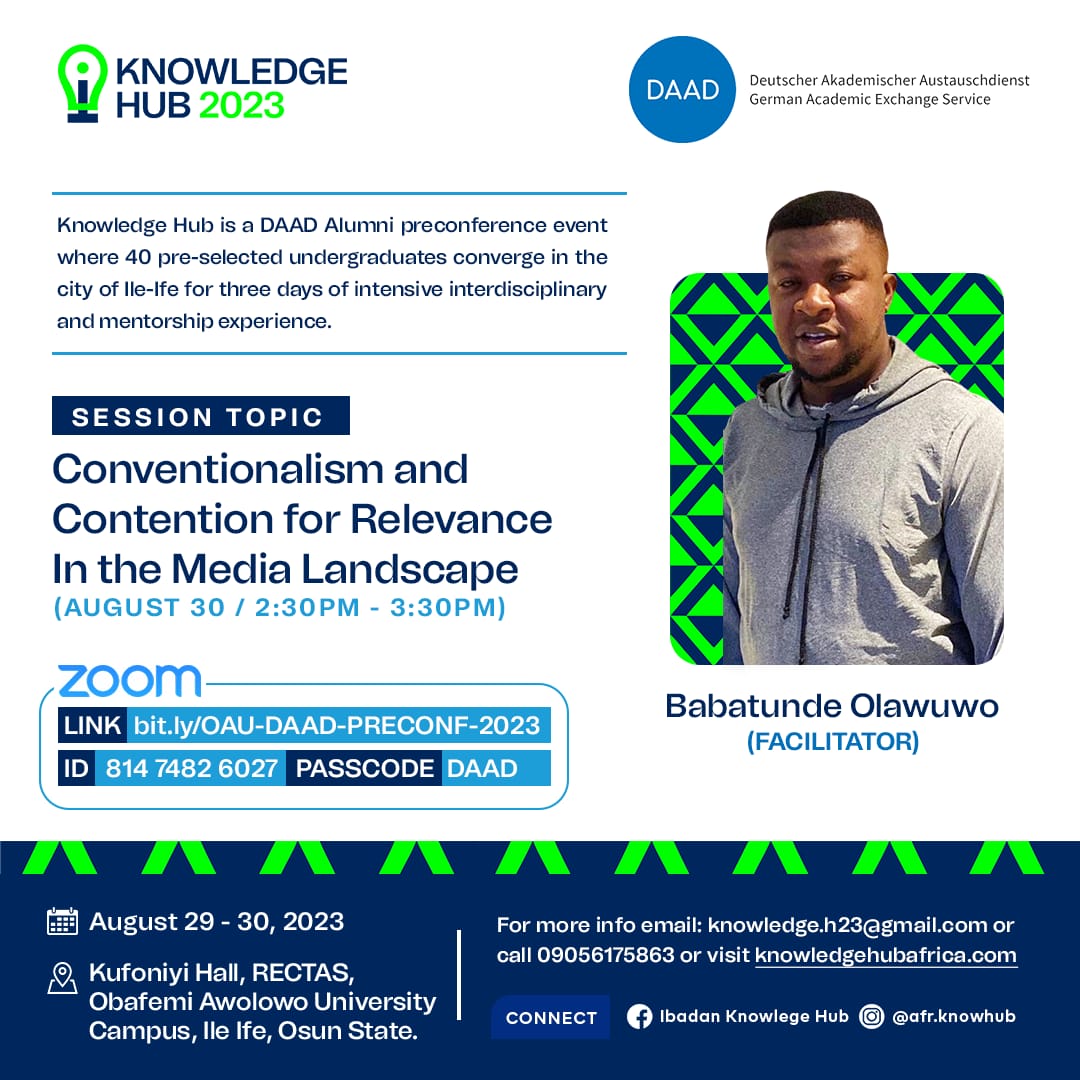
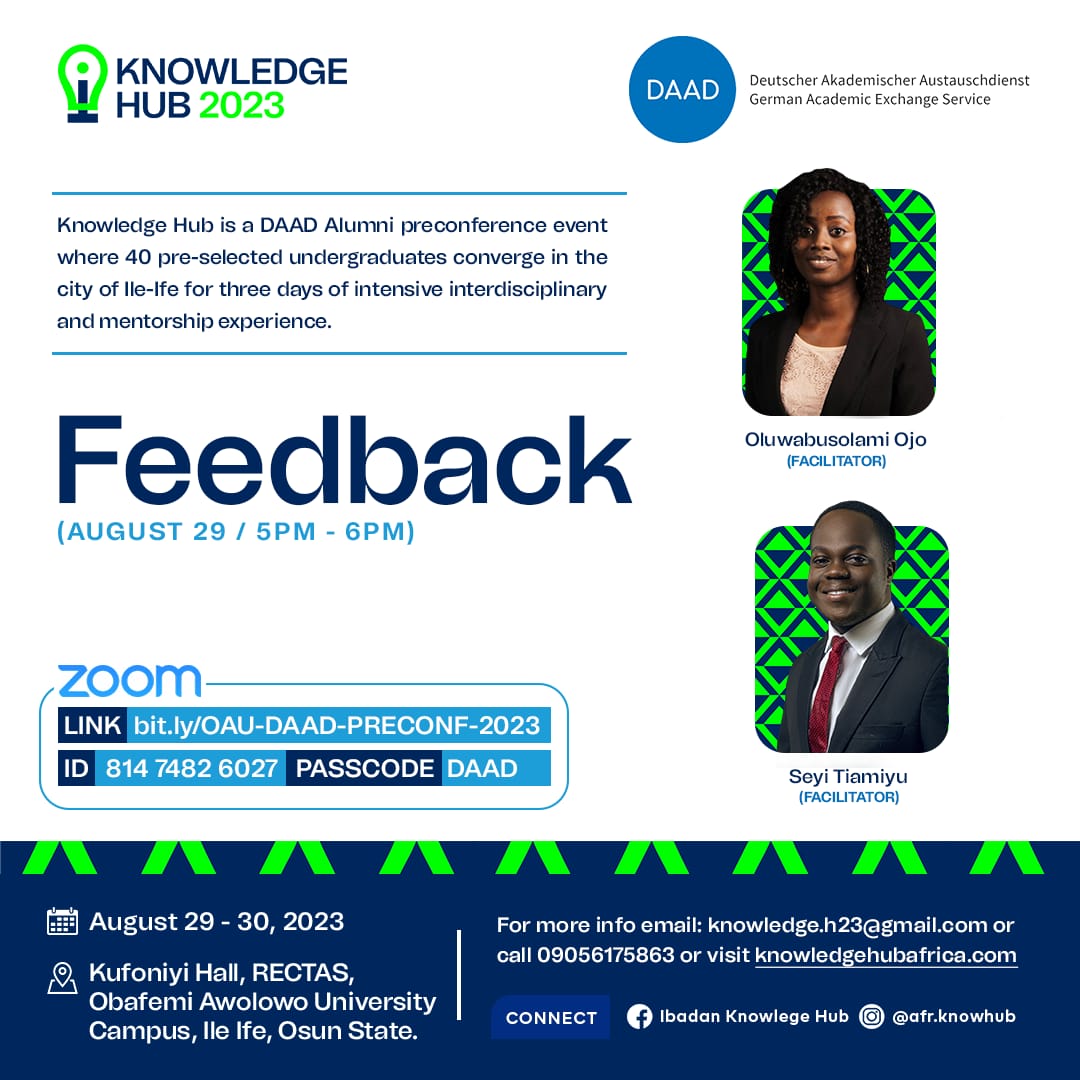
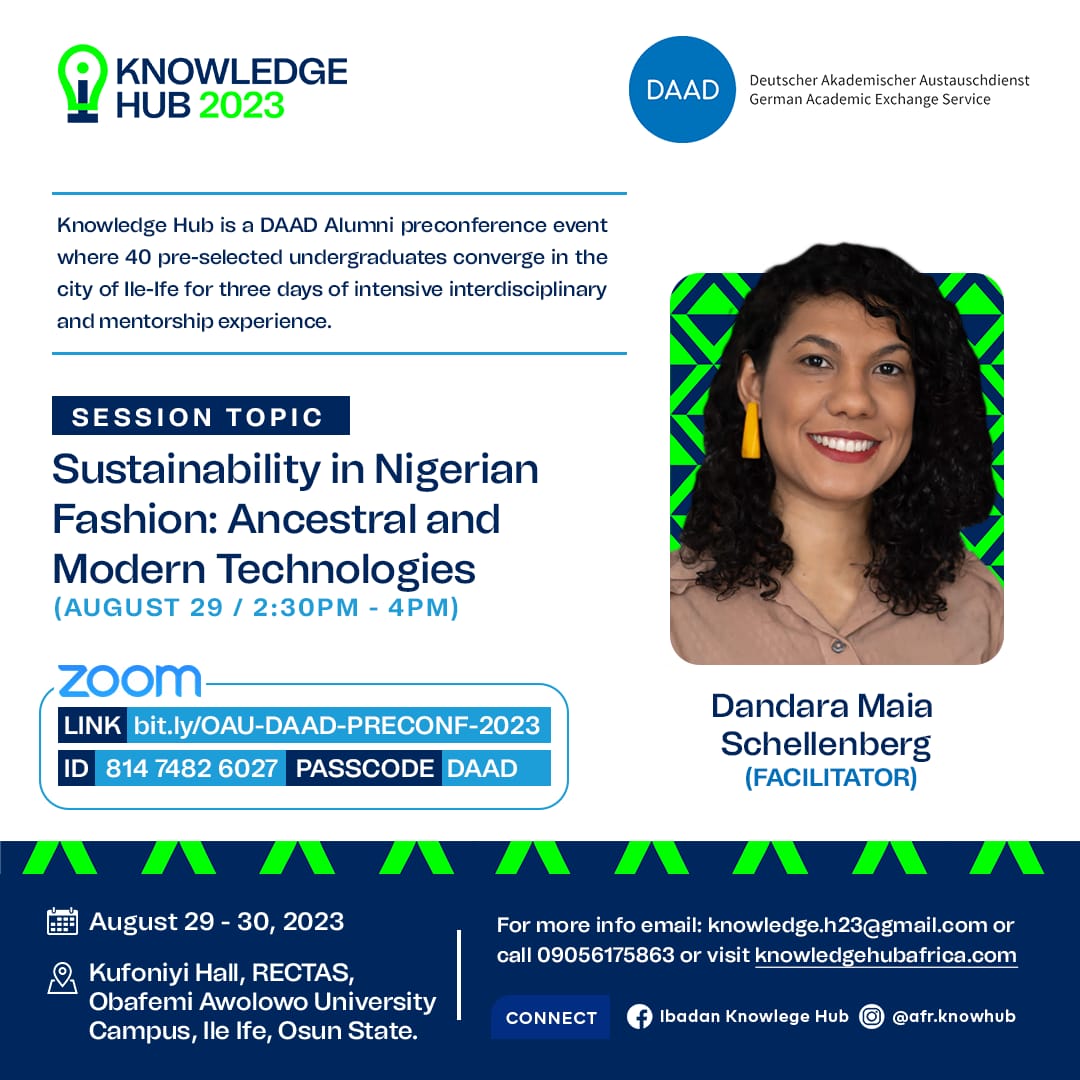
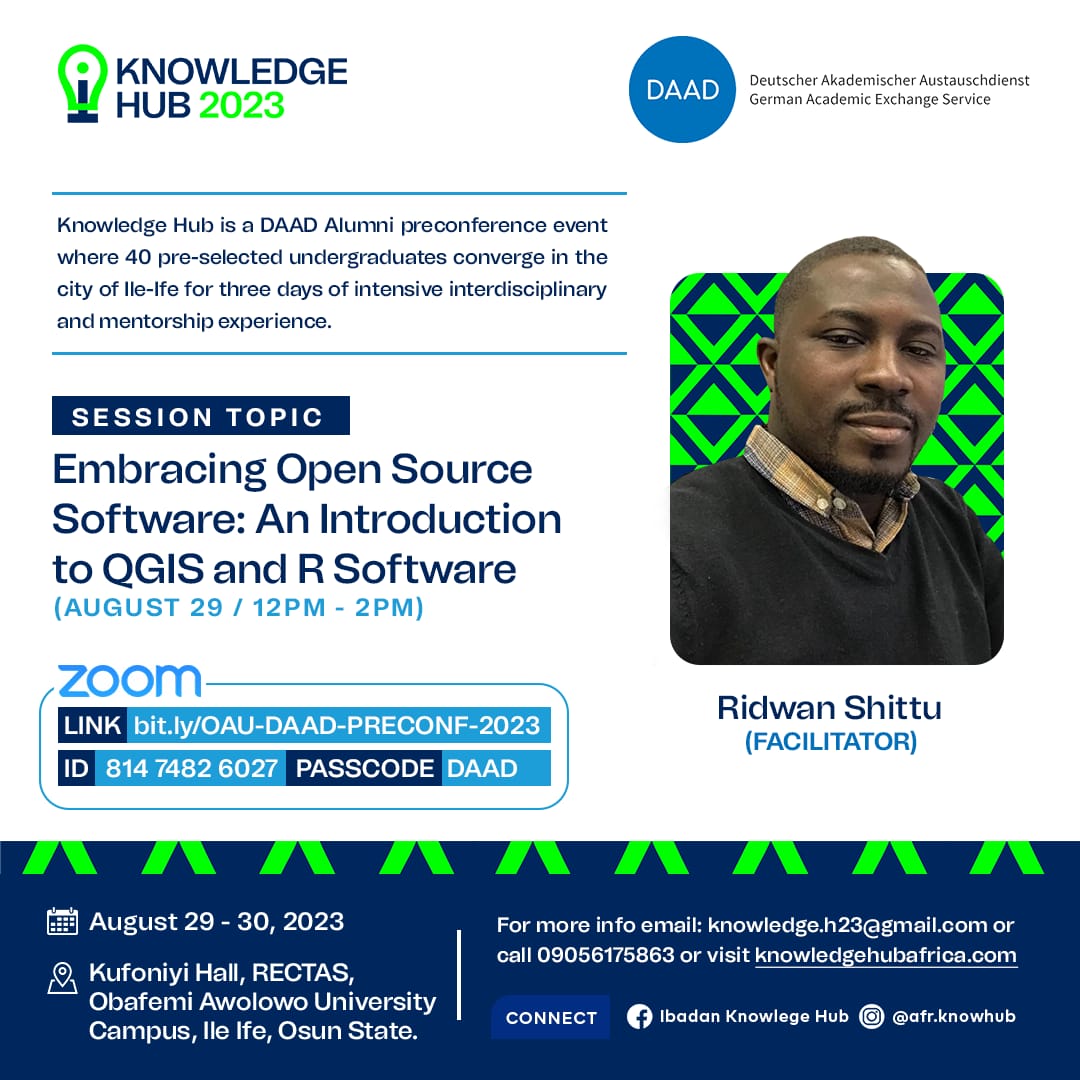

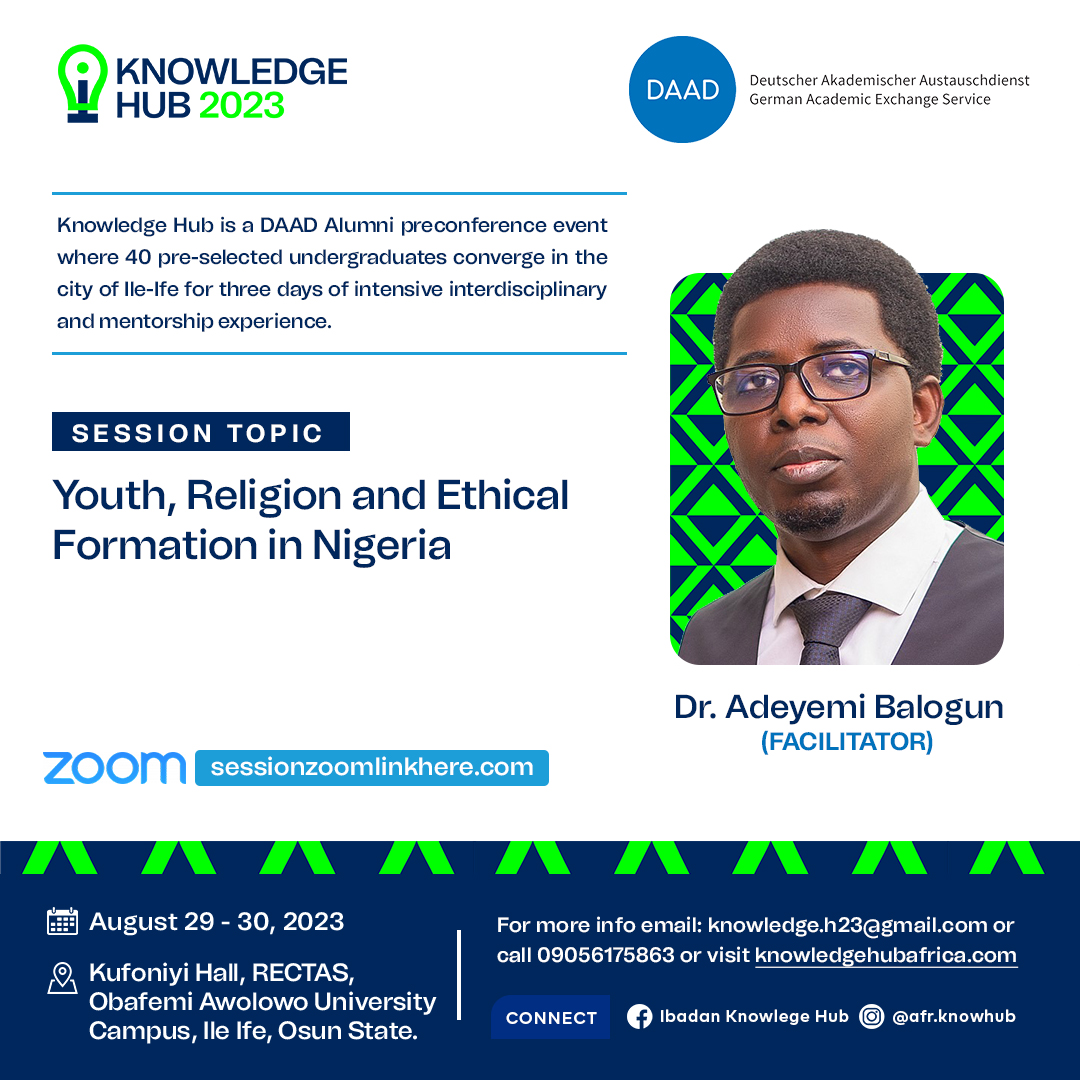
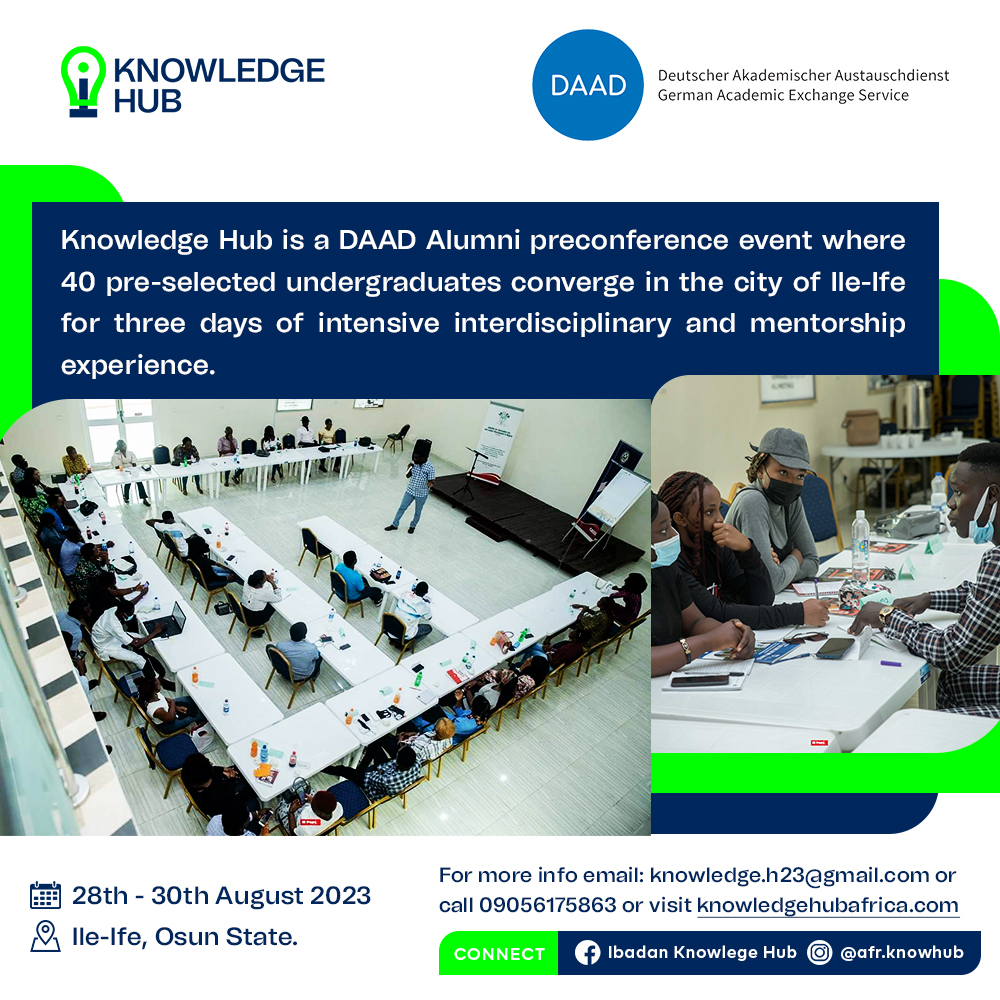
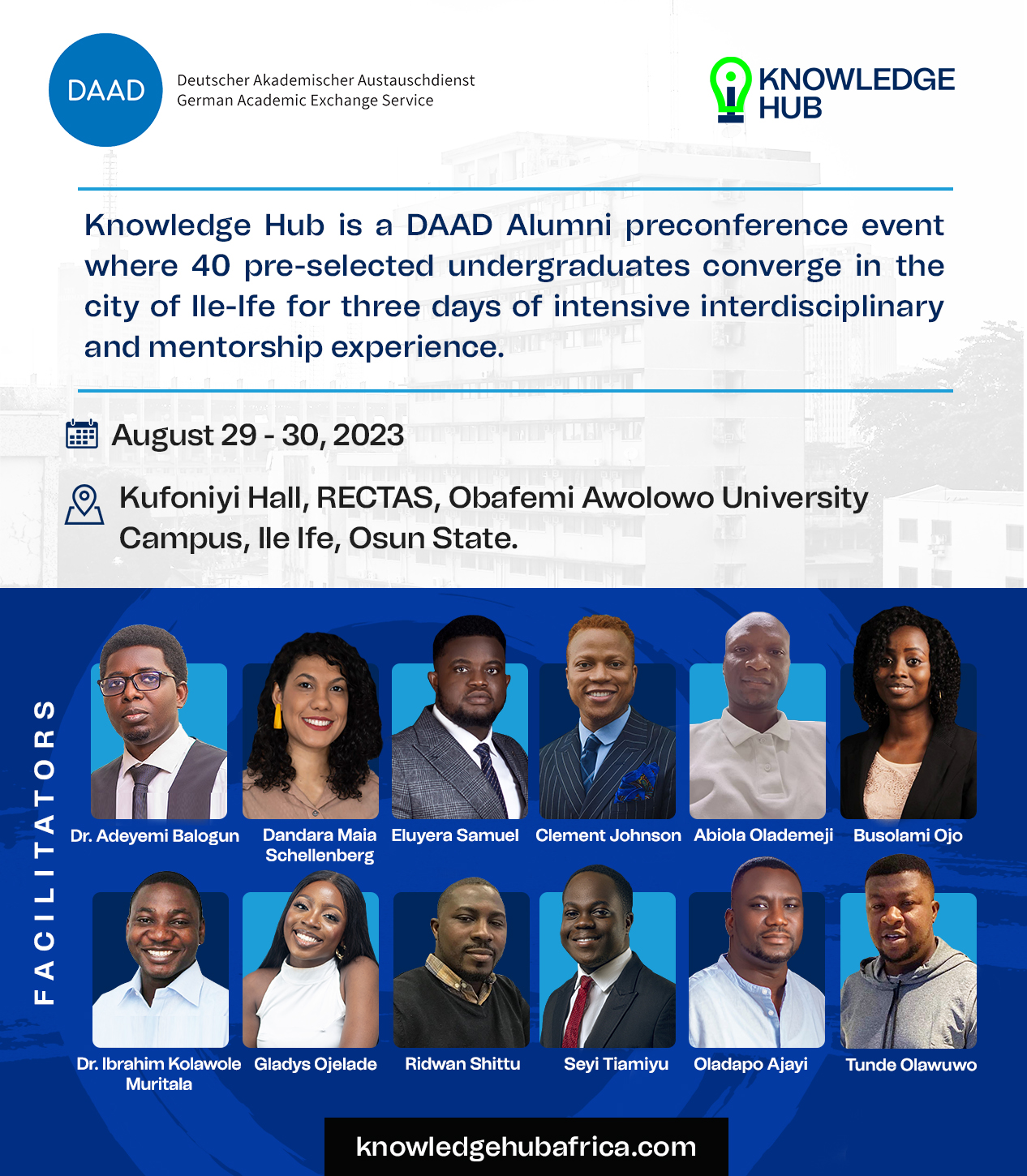

Our Idea...
How do we rethink ethics and collective responsibility for a sustainable future in Nigeria and Africa? This topic is more relevant now that multiple crises comprising the COVID-19 pandemic, impacts of climate change, global injustices and inequalities, regional violence and global hyperinflation have constrained progress and brought contradictions to societal institutions.
Globalisation, while promoting interdependence, has raised profound ethical and moral questions concerning cultural disintegration, corruption, and consumerism, impacting the self and the collective. The 2023 edition of the DAAD Alumni Conference approaches the question of collective responsibility as a way of bringing “all together to ensure a sustainable future”.
What responsibility do we have to ourselves and our communities? How can we re-imagine a social system which aggregates the intersection of concerns and questions of gender inclusivity, inter-generation dialogues, generational shifts and inclusivity, and class inclusivity? How we rethink the ethical ramifications of the current technological transformations and their impact on human societies? How do we approach issues of energy transition and sustainable development in Nigeria/ Africa vis-à-vis the global policy – bearing in mind a prevailing scenario that the current global north’s interests are at the global south’s detriment?
To this end, we see it as our obligation to continue the dialogue we initiated at the 2020 and 2021 DAAD Alumni Conference held in Ibadan, Nigeria, under the themes of “ Insecurities and Social Cohesion in Nigeria: Living In/Through Risk Society” and “Falling Apart? Inclusion as an Intervention into the Nigerian Experience” respectively. Given the impact of research on society, in terms of the potential to generate innovative solutions to problems, and yet with the associated risk of harm, rigorous ethical research conduct is essential to ensure public trust in the research endeavours. The conference will therefore provide another opportunity to re-evaluate the role of the DAAD Alumni network in our locality as collaborators and interventionists. Against this backdrop, the conference is not just a ‘talk shop’ gathering but an opportunity for social engagements towards the solution and development-driven activities. In this regard, the Knowledge Hub project is initiated as our pre-conference activities encapsulating our vision of intervening in social problems through knowledge applications.
Manifesto
The Knowledge Hub is a value-oriented initiative driven by the following idea(l)s:
1. The Knowledge Hub is born from the idea that knowledge is liberating and empowering, personally and collectively. Self-awareness and collective consciousness from knowledge spur true development; hence, knowledge should be applicable and practical.
2. The Knowledge Hub aligns with the vision that bridges hierarchical gaps and drives inclusive knowledge production spaces and practices. Therefore, Knowledge should be relatable and unrestrictive.
3. The Knowledge Hub is envisioned as a space of enablement for individual and collective responsibilities and responses to environmental and other social challenges through boundless intellectualism. The urgency to evaluate and promote social responsibility is fundamental to the Knowledge Hub.
4. The Knowledge Hub lends itself to the consciousness that knowledge can only be co-created across stratifications. The participant is a benefactor of an adequate knowledge exchange and the facilitators. Moreso, early career facilitators benefit by acquiring teaching experience and career enhancement. It is a platform that offers avenues to contribute towards the development of one’s society and humanity and large.
5. The Knowledge Hub is a quest towards a preferable African future and society, hence, believes the fusion of indigenous knowledge systems and modern enablement are pivotal to this achievement.

